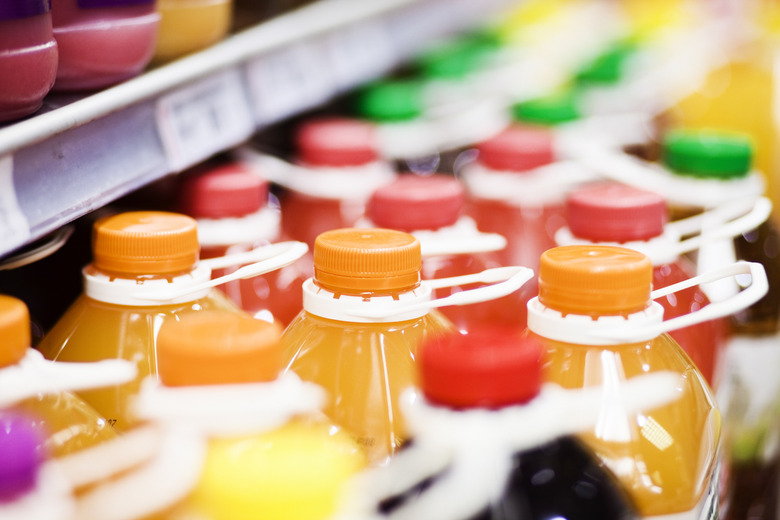Are Zero-Calorie Drinks Ever Really Healthy?
There are a million on the market lately: zero calories, zero consequences, right? Wrong.
Some zero-calorie drinks are perfectly healthy. Cucumber water, for instance, has absolutely zero calories or consequences. We all know diet soda is dangerous, but we bet you didn't know how far the dangers really go.
Seltzer, stevia-sweetened water, and other "naturally flavored" beverages are flaunted as being healthier than their high-calorie alternatives, but in a lot of cases this is absolutely wrong. With all the health consequences, blood sugar spikes, and metabolism sabotage hidden beneath the caps of low-calorie drink alternatives, you might be better off just drinking the calories and sugars and moving on.
So what should you look for besides the calories on the label? There are a few ingredients that have consequences that could make you want to steer clear.
Stevia
Yes, it's "natural" because it comes from a plant — but it wasn't meant to be ingested in such large quantities. Stevia-sweetened drinks are often flaunted for having zero sugar content and still being super sweet. This is true: Stevia leaf extract is actually 30 times sweeter than plain white sugar. Often, recipes only call for a small amount of the stuff.
But even minute amounts of stevia have been linked to bloating, nausea, and an urge to use the bathroom. If your instinct is anything like ours, you suspect it, too — that can't be good for you.
Sucralose
This is one of those artificial chemical sweeteners we all know is bad. It's a popular ingredient in soda and is the culprit for sugar cravings, weight gain, and maybe even cancer.
This scary sweetener is hiding in more than just soda, though. Did you know it's often added to sports drinks, iced tea, and even sparkling flavored waters?
Artificial Coloring
Coca Cola got some bad press for the dangers of their caramel colorings, but they're not the only ones doing it. Zero calorie drink brands like Sparkling ICE are using a ton of colorings and dyes to make their drink flavors look more appealing. Often, these ingredients are labeled exactly for what they are: They'll say "red 40" or "yellow 5," making them easy to spot and easy to avoid.
"Natural" Flavors
The secret is out — natural flavors aren't all that natural. Read all there is to know about these additives here.
Aspartame
The deadly sweetener behind Equal and many diet sodas is also hiding in some of your "healthier" drink options. Do you drink sparkling water? What about sugar-free coffee creamer? Check the label.
Erythritol
This is a sugar alcohol — a type of sugar molecule that your body cannot digest, and therefore cannot derive calories from. It gets a good reputation because it doesn't cause the blood sugar spike that other sweeteners do. However, it has other adverse side effects such as headache, diarrhea, and other digestion issues.
Drinks often contain sugar and calories from natural ingredients, such as coconut, fruit, and milk. These sugars aren't the same as the kinds in soda, and there is no reason to avoid them.
To be honest, a little sugar won't do you a ton of harm — but harsh chemicals might. While it's wise to avoid high-calorie drinks with tablespoon after tablespoon of sugar, moderate-calorie drinks with more reasonable sugar content (less than 15 grams) could be a healthier choice than their zero-calorie alternatives.
